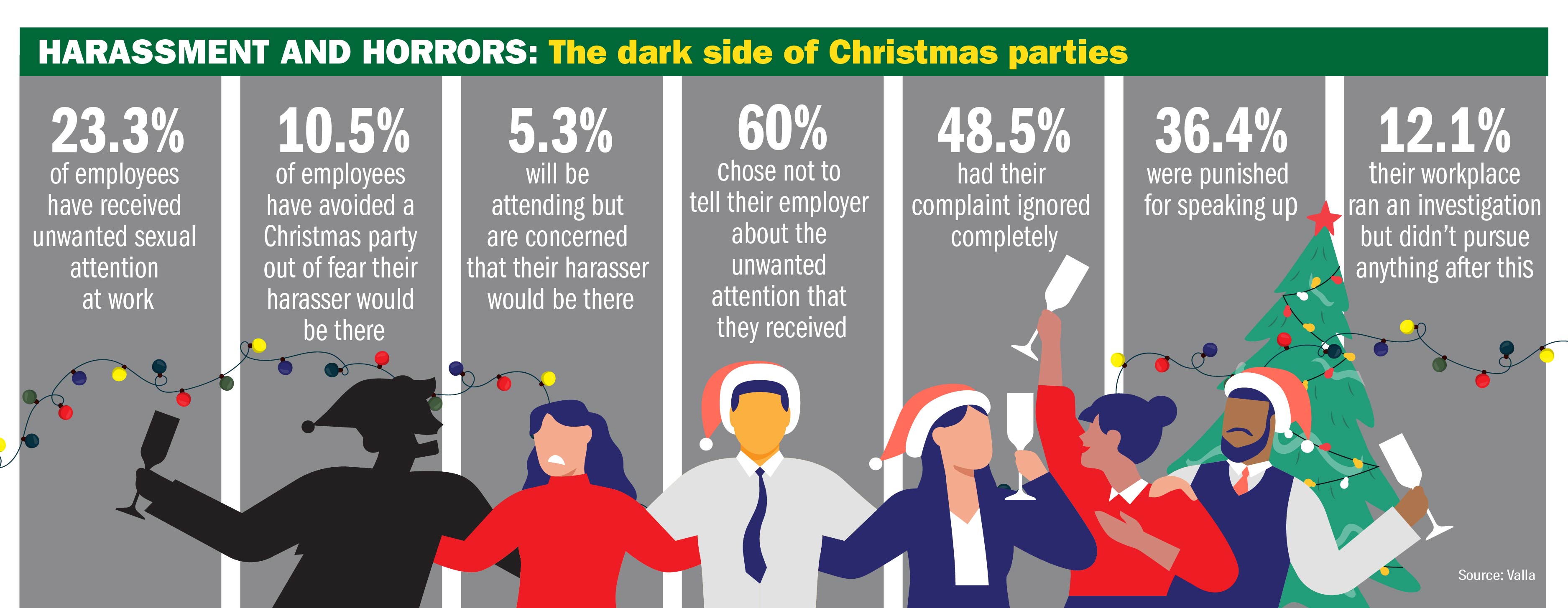
'You don't want to throw a blanket on the party and say, 'Nobody's going to have fun' - but you want to be careful,' says employment lawyer

As the holiday season approaches, seasonal office parties often become a focal point for celebration. However, these events can also present challenges if not carefully planned and managed.
Research from After Drink found that one in 10 employees have been disciplined or even fired as a result of their festive party behaviour, with 45% adding that they feel like they’d done something embarrassing.
But blushes and hangxieties aside, for employers looking to remain legally compliant and avoid any liabilities, both from a conduct and possible “social host” perspective, it is essential to approach these parties with care, consideration and communication.
For Lorenzo Lisi, partner at Aird & Berlis, the very first step for employers and HR leaders is comprehensive planning.
“When planning a party, employers should consider a host of factors, including inclusivity and accessibility for its employees. This means being mindful of other religious observances and ensuring the event space is accessible to all employees. It’s essential to communicate expectations clearly – and make it clear that employees are responsible for their behaviour and that of their guests. Reinforce that misconduct will not be tolerated.”

Additionally, event organizers should avoid activities that might encourage inappropriate behaviour.
“Games or traditions that could lead to discomfort, like excessive alcohol consumption or suggestive activities, should be avoided,” he told HRD.
Alcohol consumption is often a central concern for employers during the holiday season. To mitigate risks, Lisi suggests practical steps, like limiting the amount of drink tickets that employees are given and contracting with trained bartenders.
“Have a third party do the bartending," he advises. “They’re trained to monitor behaviour and recognize signs of overconsumption.”
Employers should also provide alternatives such as taxi vouchers, stipends for hotel rooms, or organized rideshares for those employees who might find themselves “over refreshed” and seek to drive home. "If people are coming from out of town, think about stipends for accommodations," Lisi adds.
And the rationale for these measures isn’t just ethical—it’s legal.
"Employers may be bound by social host liability," Lisi explains. This means if it’s foreseeable that someone might drink excessively and then harm themselves or others, the company could be held liable.
Misconduct at a company-sponsored event can carry serious consequences. As the party is often ‘out of working hours’, employees may be under the false impression that their conduct can’t come back to bite them – this, as Lisi explains, couldn’t be further from the truth.
“They especially apply to holiday parties where, if sponsored by the employer, could be deemed the “workplace” for the purpose of any complaint of harassment, discrimination etc.”
A recent case out of the UK, Gimson v Display by Design Ltd, saw an employee dismissed after he allegedly punched another colleague after their Christmas party.
But for Lisi, one of the main areas of concern here is unwanted attention – namely sexual misconduct and assault. According to research from Valla, 10% of employees admit they’ve not attended their festive party to avoid unwanted sexual attention. And yet, despite these concerns, 60% of workers affected declined to tell their employer about the harassment out of concerns they’d be ignored or not believed.
At the office party, Lisi says the same rules always apply.
“If it's a company-sponsored party, you could still have a violation of your harassment policies,” he tells HRD. “An employee can still be disciplined or dismissed – an employer can extend the definition of workplace from the four walls of the workplace to where that event occurs, which is why you need to be very, very careful.”
“Employees need to understand that the application of harassment policies doesn’t take a vacation over the holiday season.”
Ultimately, while end of year partied are a time to have fun and bond with colleagues, that doesn’t mean it’s a free for all. And while HR doesn’t want to come across as the fun police, it’s essential for compliance and legal reasons that everyone’s on their best behaviour.
“You don't want to throw a blanket on the party and say ‘Nobody's going to have fun’ - but you want to be careful,” adds Lisi. “And remind your employees to be respectful and compliant with workplace policies.”